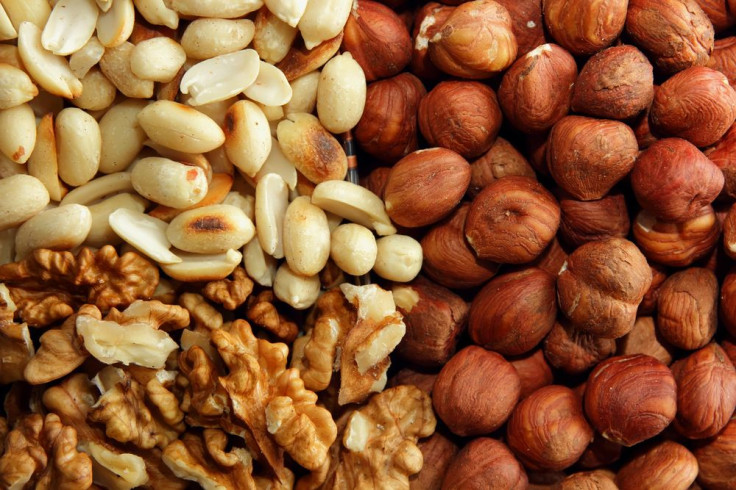Eating Nuts During Pregnancy May Lower Your Child's Risk of Developing Peanut Allergy

Nut allergy prevention may start in the womb. In a new study from the Dana-Farber Children’s Care Center, researchers show that a child is less likely to develop peanut and tree nut allergies if their mother is not allergic and ate more nuts during her pregnancy. The findings could inspire new public health strategies to curb a potentially fatal group of allergies.
Since 1997, the prevalence of childhood nut allergy in the U.S. has more than tripled from 0.4 percent to 1.4 percent. While the condition’s symptoms are often limited to redness, swelling, and runny nose, exposure to allergens can also induce anaphylaxis — a life-threatening reaction that can lead to asphyxiation. Published in JAMA Pediatrics, the new paper sought to investigate whether early exposure to peanuts and tree nuts can decrease a person’s risk of developing the restrictive allergy.
Peanuts and Pregnancy
For the study, the authors surveyed children born to mothers who had reported their pregnancy diet as part of the Nurses’ Health Study II, a longitudinal population study from Harvard University. In a sample of 8,205, they identified 140 cases of peanut and tree nut allergy. According to the lead author Lindsay Frazer and her colleagues, the data suggests that a mother’s peanut or tree nut intake during pregnancy is inversely proportional to their child’s risk of developing allergies.
"Our study supports the hypothesis that early allergen exposure increases the likelihood of tolerance and thereby lowers the risk of childhood food allergy. Additional prospective studies are needed to replicate this finding,” they wrote in their conclusion. "In the meantime, our data support the recent decisions to rescind recommendations that all mothers avoid [peanuts and tree nuts] during pregnancy and breastfeeding."
Alleviating the Burden of Peanut Allergies
In an accompanying editorial, Ruchi Gupta of Northwestern University Feinberg School of Medicine said that, despite its limitations, the new study offers strong evidence that pregnant women should adopt meal plans that emphasize peanuts and tree nuts. "Frazier and colleagues report a strong inverse association between peripregnancy nut intake and the risk of nut allergy in children among mothers who did not have nut allergies," he wrote. "Although the dietary surveys were not specific for the actual dates of pregnancy, these findings support recent recommendations that woman should not restrict their diets during pregnancy.”
The current study adds to a growing number of technological innovations and lifestyle changes aimed at alleviating the societal burden of nut allergies. In another study from the University of Illinois, Urbana-Campaign, engineers show how their new “allergy app” can turn your smartphone into biosensor capable of detecting traces of a range of allergens. Together, these research efforts will hopefully reduce the incidence of allergies as well as accidental exposure to allergens.
Source: Frazier A, Camargo CA, Jr, Malspeis S, Willett WC, Young MC. “Prospective Study of Peripregnancy Consumption of Peanuts or Tree Nuts by Mothers and the Risk of Peanut or Tree Nut Allergy in Their Offspring”.JAMA Pediatr. 2013



























